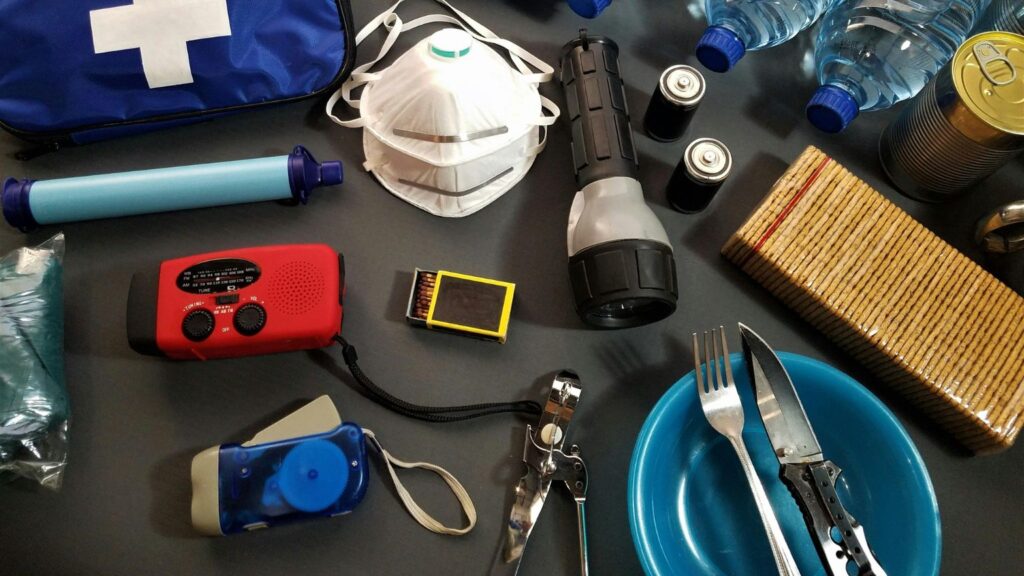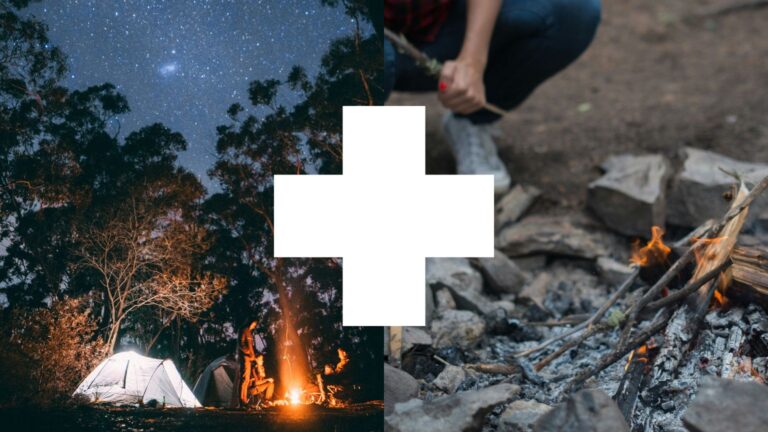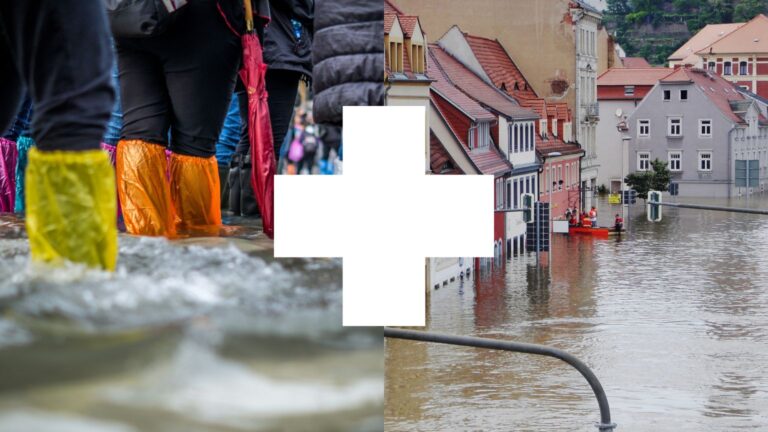When faced with extreme situations, such as natural disasters, combat, or wilderness survival, the human mind is subjected to immense stress and pressure. In these situations, the psychological factors that determine an individual’s ability to survive can be just as important as their physical abilities.
In this article, we will explore the psychological aspects of survival, including the psychological processes that occur during extreme situations, the factors that contribute to a person’s ability to survive, and strategies for maintaining the fighting spirit in extreme situations.
The Psychological Processes of Survival
When faced with an extreme situation, the human brain undergoes a series of physiological and psychological changes that help individuals respond to the threat.
These changes include:
- Fight-or-Flight Response: The body’s initial response to stress is the fight-or-flight response, which prepares the body for immediate action. This response is characterized by increased heart rate, blood pressure, and respiration, as well as increased energy and alertness. This response is triggered by the release of stress hormones, such as adrenaline and cortisol, which prepare the body for “fight” or “flight” by increasing muscle tone, strength, and speed.
- Stress Response: The stress response is a prolonged response to stress, which involves the activation of the hypothalamic-pituitary-adrenal (HPA) axis. This response leads to the release of stress hormones, such as cortisol and adrenaline, which help individuals cope with stress. The HPA axis is a complex system that regulates the body’s response to stress, including the release of hormones that help individuals cope with stress.
- Survival Instincts: In extreme situations, individuals may experience a heightened sense of survival instincts, which drive them to prioritize their own survival over all else. This can include a strong desire to protect oneself from harm, to find food and shelter, and to maintain physical health.
- Trauma Response: Trauma can occur in extreme situations, leading to a range of psychological symptoms, including anxiety, depression, and post-traumatic stress disorder (PTSD). Trauma can have a lasting impact on an individual’s mental health and well-being.
- Coping Mechanisms: Coping mechanisms are psychological strategies that individuals use to deal with stress and adversity. These mechanisms can include avoidance, denial, repression, and displacement.

Factors that Contribute to Survival
Several factors contribute to an individual’s ability to survive in extreme situations. These include:
- Physical Conditioning: Physical fitness is essential for survival in extreme situations, as it enables individuals to perform physical tasks and maintain their energy levels.
- Mental Preparation: Individuals who are mentally prepared for extreme situations are better equipped to cope with the stress and uncertainty that comes with these situations.
- Social Support: Social support from family, friends, or colleagues can be a crucial factor in survival, as it provides emotional support and helps individuals feel more connected to others.
- Cognitive Abilities: Cognitive abilities, such as problem-solving skills and attention span, are essential for surviving in extreme situations.
- Personality Traits: Certain personality traits, such as resilience and adaptability, can help individuals cope with extreme situations.
- Prior Experience: Individuals who have prior experience in extreme situations may be better equipped to cope with these situations due to their familiarity with the environment and their ability to draw on past experiences.
- Learning from Others: Learning from others who have survived in extreme situations can provide valuable insights and strategies for coping with these situations.
- Access to Resources: Access to resources such as food, water, shelter, and medical care can significantly impact an individual’s ability to survive in extreme situations.
- Environmental Factors: Environmental factors such as temperature, humidity, and weather conditions can impact an individual’s ability to survive in extreme situations.
- Luck: A certain degree of luck can also play a role in an individual’s ability to survive in extreme situations.
Maintaining the Fighting Spirit
In extreme situations, maintaining a positive mindset and fighting spirit is essential for survival.
Here are some strategies for maintaining the fighting spirit:
- Stay Positive: Maintaining a positive attitude can help individuals stay focused and motivated in extreme situations.
- Stay Focused: Staying focused on the task at hand can help individuals avoid feelings of overwhelm and anxiety.
- Set Goals: Setting realistic goals can help individuals stay motivated and focused on their survival.
- Stay Connected: Staying connected to others through communication or social support can provide emotional support and help individuals feel more connected to others.
- Practice Mindfulness: Practicing mindfulness techniques, such as meditation or deep breathing, can help individuals stay present and focused in extreme situations.
- Develop Problem-Solving Skills: Developing problem-solving skills can help individuals cope with unexpected challenges and obstacles.
- Stay Adaptable: Staying adaptable and open-minded can help individuals adjust to changing circumstances and unexpected challenges.
- Seek Support: Seeking support from others who have survived in extreme situations or seeking professional help can provide emotional support and help individuals cope with trauma.
- Focus on What You Can Control: Focusing on what you can control can help individuals feel more empowered and less overwhelmed by their situation.
- Maintain a Sense of Humor: Maintaining a sense of humor can help individuals cope with stress and adversity by providing a healthy distraction from their situation.
Additional points to consider
The Role of Emotions in Survival
Emotions play a crucial role in survival, particularly in extreme situations. Fear, anxiety, and panic can impair an individual’s ability to think clearly and make rational decisions, which can be detrimental to survival.
On the other hand, emotions such as hope, optimism, and resilience can help individuals cope with stress and adversity, and increase their chances of survival.
The Importance of Physical Exercise
Physical exercise is essential for survival in extreme situations. Regular exercise can improve an individual’s physical fitness, endurance, and strength, which can help them cope with the physical demands of survival.
Additionally, exercise can help reduce stress and anxiety, and improve mental health.
The Role of Social Support
Social support is a critical factor in survival, particularly in extreme situations. Having a supportive network of friends, family, or colleagues can provide emotional support, help individuals feel more connected to others, and increase their chances of survival.
Social support can also help individuals cope with stress and adversity by providing a sense of belonging and reducing feelings of isolation.
The Impact of Trauma on Mental Health
Trauma can have a significant impact on an individual’s mental health, particularly in extreme situations. Trauma can lead to post-traumatic stress disorder (PTSD), anxiety disorders, and depression. It is essential to recognize the signs and symptoms of trauma and seek professional help if necessary.
The Importance of Mental Preparation
Mental preparation is essential for survival in extreme situations. Individuals who are mentally prepared for emergency situations are better equipped to cope with stress and adversity, and increase their chances of survival.
Mental preparation can include training, education, and practice in emergency response techniques.
The Role of Technology in Survival
Technology has played a significant role in improving survival rates in extreme situations. GPS devices, satellite phones, and other communication devices have helped individuals navigate and communicate in emergency situations.
Additionally, technology has enabled the development of new survival tools and equipment, such as personal locator beacons and emergency response systems.
The Importance of Adaptability
Adaptability is a critical factor in survival, particularly in extreme situations. Individuals who are able to adapt to changing circumstances are better equipped to cope with unexpected challenges and obstacles.
Adaptability can help individuals stay flexible and respond effectively to unexpected situations.
The Role of Culture and Society
Culture and society play a significant role in shaping an individual’s response to extreme situations. Cultural values and beliefs can influence an individual’s perception of risk and danger, as well as their willingness to take risks or seek help. Additionally, societal norms and expectations can influence an individual’s behavior in emergency situations.

The Importance of a First Aid Kit in Survival Situations
When it comes to survival, having a well-stocked first aid kit is essential. A first aid kit should be packed with the necessary supplies to treat minor injuries, such as cuts, scrapes, and burns. In addition, a first aid kit should include supplies to treat more serious injuries, such as broken bones, head trauma, and bleeding.
When to Pack Your First Aid Kit
It’s essential to pack your first aid kit at the beginning of your trip or adventure. This will ensure that you have the necessary supplies in case of an emergency.
Multi-Purpose IFAK (Individual First Aid Kit)
A multi-purpose IFAK is a compact and portable first aid kit that can be used in a variety of situations.
Here are some tips for packing a multi-purpose IFAK:
- Choose the Right Container: Use a small backpack or duffel bag that can fit easily in your backpack or purse.
- Prioritize Essentials: Focus on the most critical supplies that you need in case of an emergency.
- Pack for Specific Situations: Pack supplies for specific situations, such as a snake bite kit or a heat stroke kit.
- Consider the Environment: Pack supplies that are suitable for the environment you will be in, such as insect repellent or sunscreen.
Tips for Using Your First Aid Kit
Here are some tips for using your first aid kit effectively:
- Keep it Clean: Keep your first aid kit clean and dry to prevent contamination.
- Check Supplies Regularly: Check your supplies regularly to ensure that they are not expired or damaged.
- Keep it Accessible: Keep your first aid kit accessible and easy to find in case of an emergency.
- Use It Wisely: Use your first aid kit wisely and only use it when necessary to prevent overuse or misuse.
By following these tips and packing a well-stocked first aid kit, you can ensure that you are prepared for any situation that may arise during your survival journey.
Conclusion
In conclusion, the psychological aspects of survival are just as important as physical abilities in extreme situations. Understanding the psychological processes that occur during extreme situations, as well as the factors that contribute to an individual’s ability to survive, can help individuals prepare for and cope with these situations.
By implementing strategies, individuals can increase their chances of survival in extreme situations.









